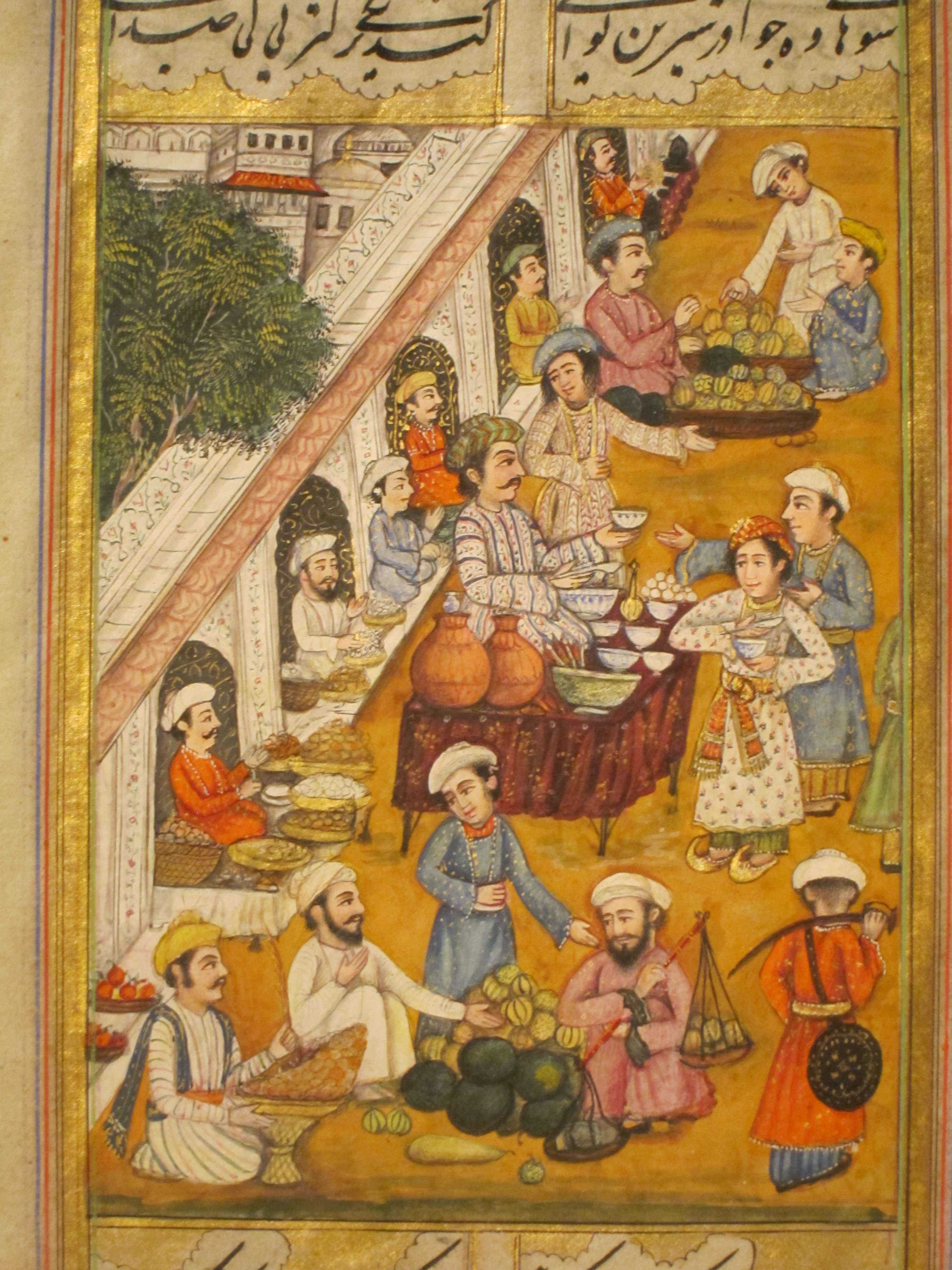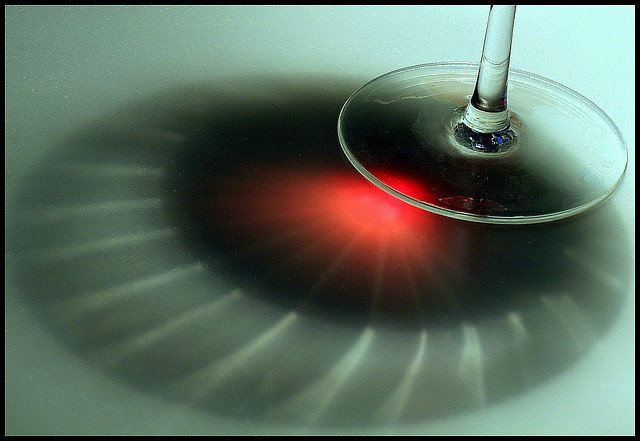FWP:
SETS == A,B; IDIOMS;
MUSHAIRAH; WORDPLAY
COMMERCE: {3,3}
WINE: {49,1}
WINE-HOUSE: {33,6}
The cleverly multivalent idiom mataa((-e dast-gardaa;N is what energizes the verse, as the commentators observe. The literal meaning of the idiom is 'property that is hand-going-around', which of course perfectly evokes the going-around of the wineglass and the wine-flagon, in the famous daur-e jaam , as they are passed around among the drinkers.
The idiomatic sense of an up-front ready-cash transaction is also perfect for the situation. If we assume, with the commentators, that both lines apply to the same 'bazaar', here are some of its possible implications about the nature of 'that bazaar':
=One's heart and faith can readily be converted into, or
used as, cash.
=No other form of cash is available or acceptable.
=The cash must be handed over in advance-- before any goods are received.
=There are plenty of eager buyers, so one should be prepared to cut a quick
deal.
=There are plenty of other bidders, so one should be prepared to pay whatever
it takes.
=The seller doesn't trust the honesty and/or credit-worthiness of the buyer.
=The seller doesn't care about the identity or circumstances of the buyer.
='That bazaar' is a regular, well-known venue for such transactions.
These were the implications that I had come up with on my own, before reading Faruqi's provocative and persuasive argument that the two lines should be read in opposition, as describing two different, contrasted situations: wineglasses are cheap and easy, but 'business' with the Cupbearer costs you everything. Doesn't Faruqi's reading suddenly open the verse up in a whole new, piquant, and enticing direction? It doesn't invalidate the other reading (of two lines, one situation), but it makes it look simple and somewhat unsubtle.
The double meaning of saudaa as 'madness' can't be missed, though nothing specific in the verse picks up on it. After all, to sell 'heart and faith' is in itself surely the result of madness, since otherwise who would part with such irreplaceable treasures? And to buy wine is also a cause of madness, since intoxication deprives one of normal awareness. So a rational bit of cash 'commerce' is also a piece of wildly crazy behavior.
Compare the even more cavalier treatment of 'heart and faith'
in {115,8}.
An illustration from Id ki tahniyat, Lucknow, 1822 (New York Public Library), generously provided by Maliha Noorani (April 2013):


Nazm:
With the going-around [daur] of the dast-gardaa;N , merchandise is always sold for a price in cash. Here, to call the wine-flask mataa((-e dast-gardaa;N has such enjoyment/refinement [lu:tf] that we ought to recognize with heart and soul our indebtedness to the author. (254)
== Nazm page 254